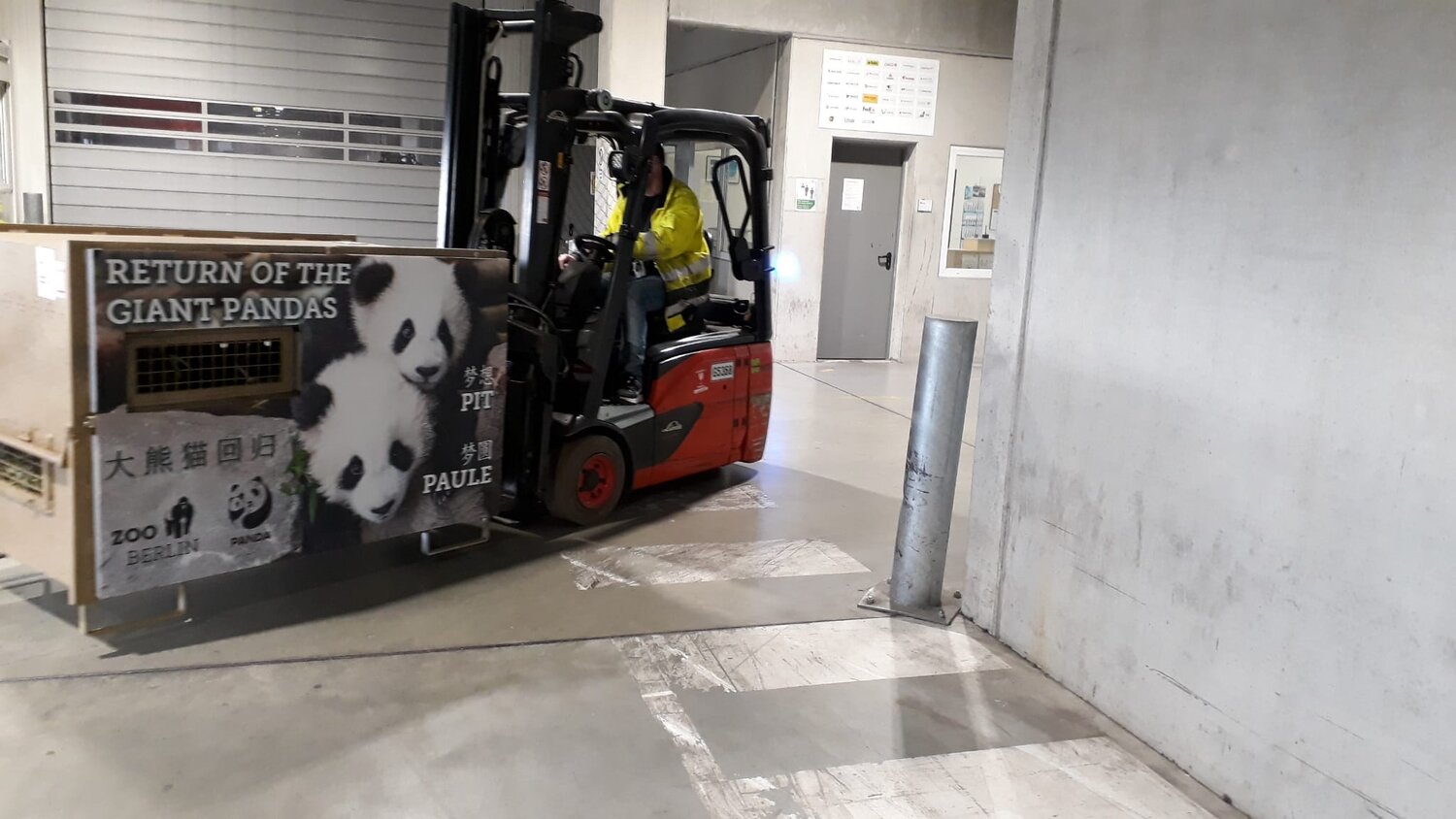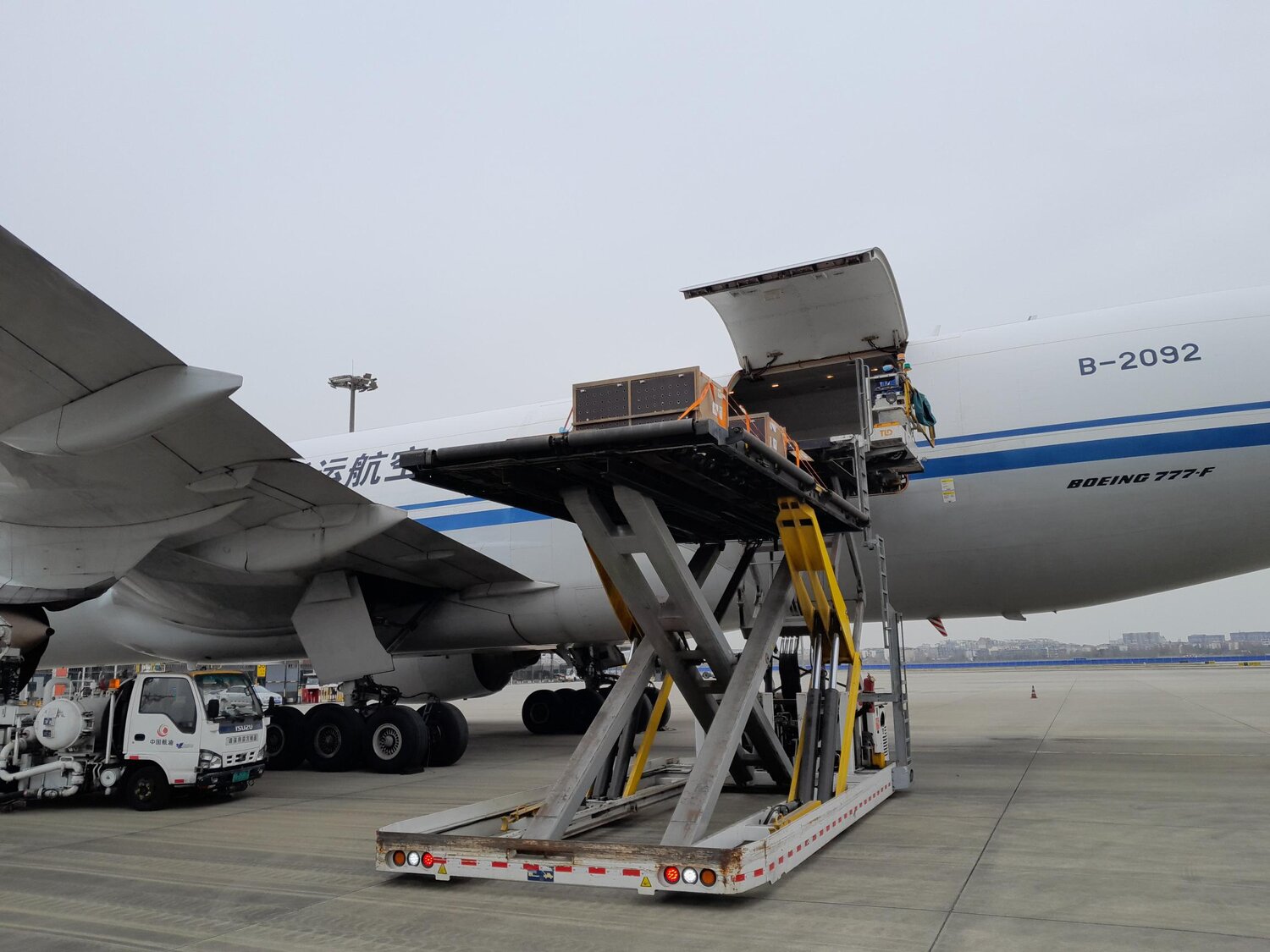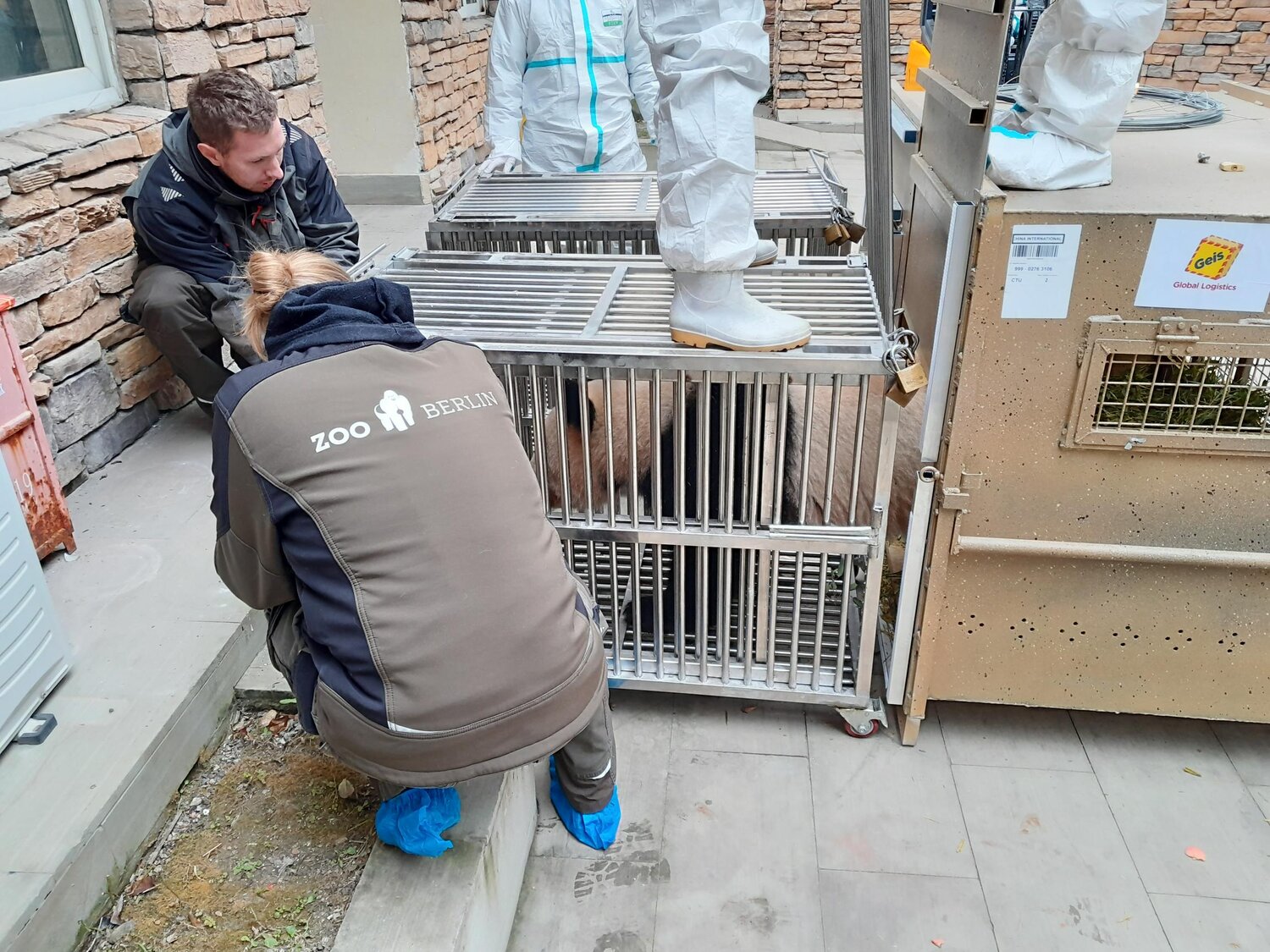According to an online route planner, it would take 2,977 hours to walk from Berlin to Chengdu, the capital of Sichuan province. Normally there are no direct flights between the German capital and the Chinese city of ten million inhabitants, but a special exception was made in order to give two very special ambassadors for species conservation as comfortable a ride as possible. At 5:30 p.m. CET on Saturday, 16 December, Berlin’s two panda boys Pit and Paule boarded an Air China Cargo Boeing 777-200F bound for Chengdu, the original home of their parents Meng Meng and Jiao Qing. A cargo flight from Frankfurt to Chengdu was especially diverted to Berlin, meaning the pandas’ flight to the homeland lasted barely more than ten hours. The two pandas landed safe and well in Chengdu at 10:40 a.m. local time, which was 3:40 a.m. in Berlin.
Pit and Paule were accompanied on their trip by Dr Andreas Pauly, head of Zoo Berlin’s Department for Animal Health, Animal Welfare and Research, and panda expert Yang Kuixing from the Chengdu Research Base of Giant Panda Breeding. They ensured that the bears had everything they needed on their journey. “Pit and Paule coped very well with the flight,” reports Pauly. “If the bamboo is good and plentiful, pandas are usually very relaxed – and that was no different on the flight.” Upon their arrival in Chengdu, the two bears were driven directly to the Chengdu Research Base, where they will initially be quarantined for 30 days. Pit and Paule were greeted on site by some familiar faces: two of their Berlin keepers had arrived in Chengdu the day before.
Zoo Berlin has been home to Germany’s only giant pandas since summer 2017. On 31 August 2019, female panda Meng Meng (now 10) gave birth to the two cubs Pit (186 grams) and Paule (136 grams). They were the first giant panda cubs ever born in Germany. Their father Jiao Qing (now 13) was not involved in the rearing of the cubs, as is normal for the species. Pit and Paule have been living separately from their mother Meng Meng since November 2021. The bears took it in turns to use the various indoor and outdoor areas at Zoo Berlin’s Panda Garden. The return of the two young pandas to China was contractually stipulated from the outset, with the two parents set to stay in Berlin for nine more years.
“Pit and Paule captured the hearts of Berliners and made history as the first panda cubs born in Germany,” says Zoo and Tierpark Director Dr Andreas Knieriem. “Our panda twins will never be forgotten here in Berlin.”
Giant panda rescue plan
The number of giant pandas in human care has doubled in the past decade as a result of extensive research. Pit and Paule are two of 698 giant pandas currently living in human care, which is around a quarter of the entire global population. According to the latest Giant Panda Survey, there are 1,864 giant pandas living in the wild in China. They are therefore classified as “Vulnerable” on the IUCN Red List of Threatened Species. The giant panda rescue plan includes establishing a successful conservation breeding programme in order to build up a secure reserve population. That has now been achieved. The next step is to conduct further research into the best way to reintroduce pandas that have grown up in captivity into the wild, and to make the necessary preparations. Some initial attempts at reintroduction have already been successful, but the preservation and restoration of suitable habitats is just as important if these animals are to survive in the wild. The Giant Panda National Park project plays a central role in restoring and connecting up fragmented habitats. The park was established in 2020 and covers parts of Sichuan, Gansu and Shaanxi provinces. It incorporates around 70 nature reserves and has a surface area of more than 22,000 km².


